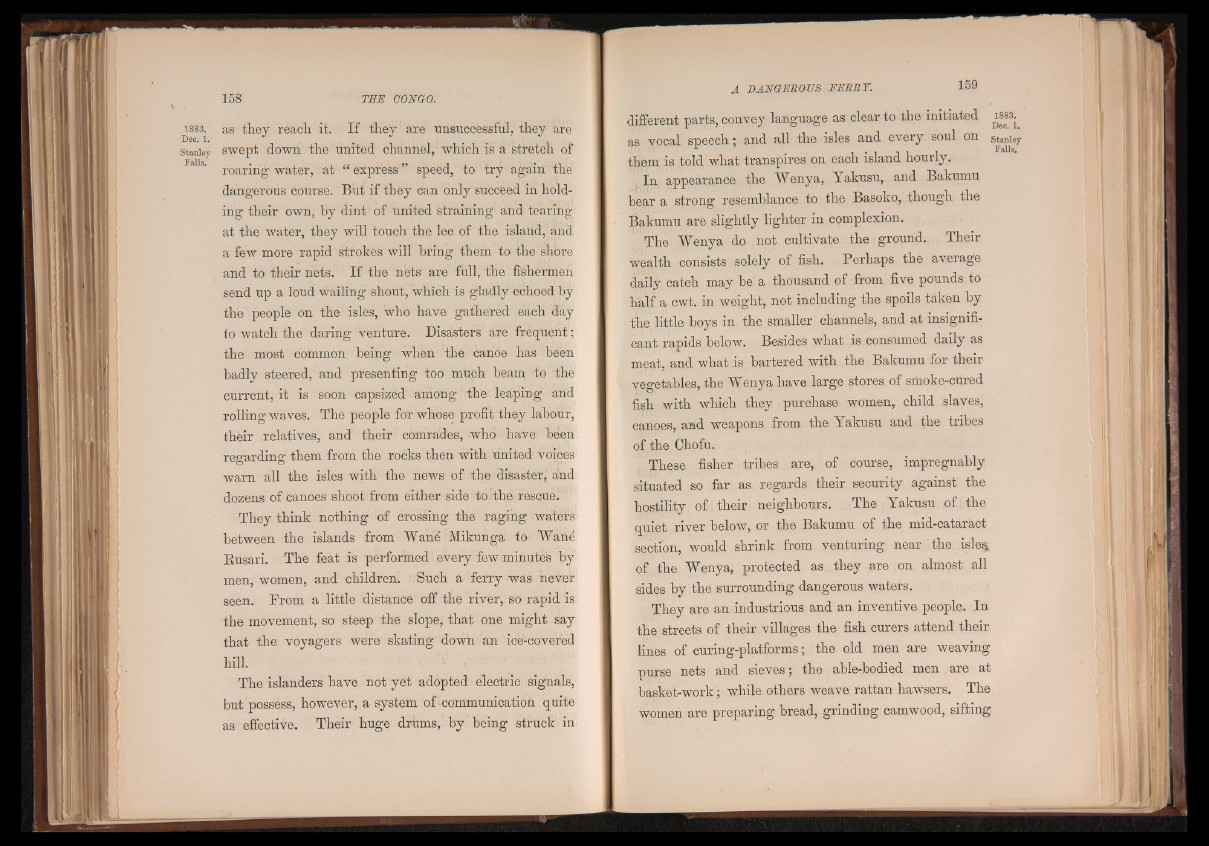
1883.
Dec. 1.
Stanlev
Falls.'
as they reach it. . If they are unsuccessful, they are
swept down the united channel, which is a stretch of
roaring water, at “ express f speed, to try again the
dangerous course. But if they can only succ'eed in holding
their own, by dint of united straining and tearing
at the water, they will touch the lee of the island, and
a few more rapid strokes will bring them to the shore
and to their nets. If the nets are full, the fishermen
send up a loud wailing shout, which is gladly echoed by
the people on the isles, who have gathered each day
to watch the daring venture. Disasters are frequent;
the most common being when the canoe has been
badly steered, and presenting too much beam, to the
current, it is soon capsized among the leaping and
rolling waves. The people for whose profit they labour,
their relatives, and their comrades, who have been
regarding them from the rocks then with united voices
warn all the isles with the news of the disaster, and
dozens of canoes shoot from either side to the rescue.
They think nothing of crossing the raging waters
between the islands from Wane Mikunga to Wane
Busari. The feat is performed every few minutes by
men, women, and children. Such a ferry was never
seen. From a little distance off the river, so rapid is
the movement, so steep the slope, that one might say
that the voyagers were skating down an ice-covered
hill.
The islanders have not yet adopted electric signals,
but possess, however, a system of communication quite
as effective. Their huge drums, by being struck in
different parts, convey language as clear to the initiated lsss.^
as vocal speech; and all the isles and every soul on Stanley
them is told what transpires on each island hourly.
In appearance the Wenya, Yakusu, and Bakumu
bear a strong resemblance to the Basoko, though the
Bakumu are slightly lighter in complexion.
The Wenya do not cultivate the ground. Their
wealth consists solely of fish. Perhaps the average
daily catch may be a thousand of from five pounds to
half a cwt. in weight, not including the spoils taken by
the little boys in the smaller channels, and at insignificant
rapids below. Besides what is consumed daily as
meat, and what is bartered with the Bakumu for their
vegetables, the Wenya have large stores of smoke-cured
fish with which they purchase women, child slaves,
canoes, and weapons from the Yakusu and the tribes
of the Chofu.
These fisher • tribes are, of course, impregnably
situated so far as regards their security against the
hostility of their neighbours. The Yakusu of the
quiet river below, or the Bakumu of the mid-cataract
section, would shrink from venturing near the isle^
of the Wenya, protected as they are on almost all
sides by the surrounding dangerous waters.
They are an industrious and an inventive people. In
the streets of their villages the fish curers attend their
lines of curing-platforms; the old men are weaving
purse nets and sieves; the able-bodied men are at
basket-work; while others weave rattan hawsers. The
women are preparing bread, grinding camwood, sifting